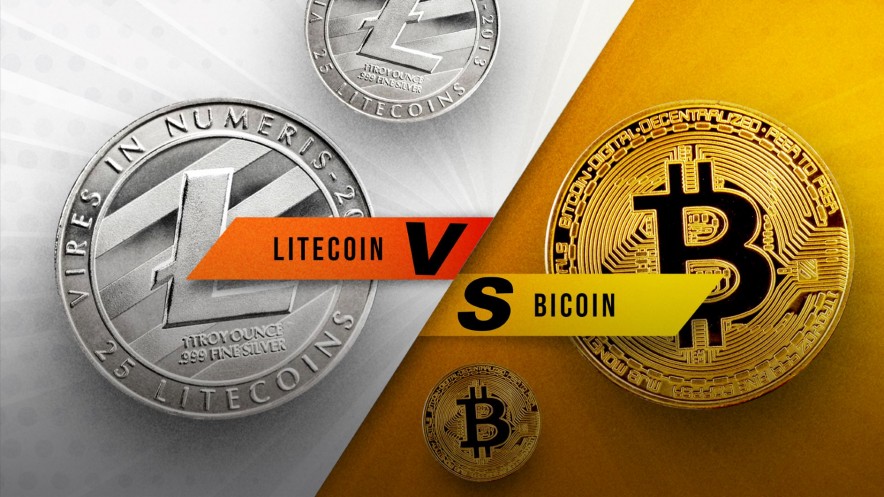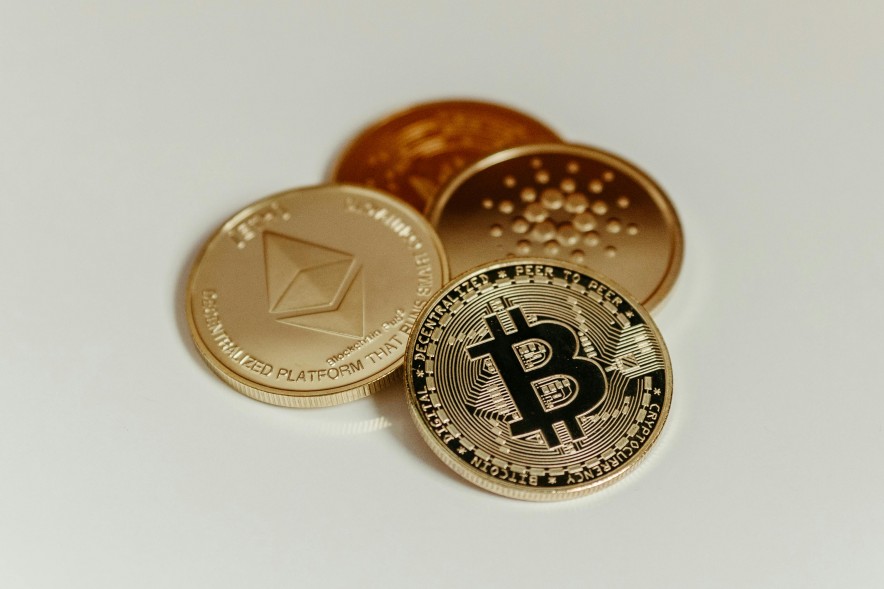Litecoin vs. Bitcoin: Which Is the Best Cryptocurrency Investment for New Buyers?
Aug 20, 2020, 2:19am
Cryptocurrency investors have numerous coins to choose from, including Bitcoin and Litecoin. Which is best for newcomers?
Cryptocurrency investors who are looking to make an investment have several cryptocurrencies to choose from. The most popular choice is Bitcoin, the largest cryptocurrency measured by market cap and the first blockchain ever invented.
Litecoin is also a noteworthy investment. Originally created as a “code fork” of Bitcoin, it has introduced numerous improvements while retaining Bitcoin’s key features. It is a good alternative choice for first-time cryptocurrency investors.
In this article, we’ll compare the features of each coin.
Features of Bitcoin
Advantages:
- Popularity: Bitcoin is by far the best-known cryptocurrency; it was created in 2008 by Satoshi Nakamoto and has influenced almost every coin that came after it. There are about 410 million web pages that discuss Bitcoin.
- Market cap: Bitcoin has a market cap of $225 billion as of August 17, 2020. (This is simply the combined value of every Bitcoin in circulation.)
- Market dominance: Despite Bitcoin’s massive price fluctuations, it has never lost its #1 spot on the market. It accounts for ~60% of the crypto market’s entire value.
- Transaction volume: Right now, Bitcoin handles about $25 billion per day―more value than any other cryptocurrency apart from Tether.
- Commercial acceptance: Though Bitcoin is not universally accepted, it is the most widely accepted cryptocurrency. About 3300 merchants accept Bitcoin.
- Development: Bitcoin is supported by developers at various organizations including Blockstream, MIT, and Square Crypto. Many non-profit developers also contribute to Bitcoin; they are listed on Bitcoin.org.
Disadvantages:
- Fees: The average Bitcoin transaction costs about $0.50 or more, which is relatively high among cryptocurrencies.
- Transaction times: One block of Bitcoin transactions is confirmed every ten minutes, meaning that transactions are not immediately finalized.
- Efficiency: Bitcoin is often criticized for not handling transactions efficiently. It is possible for Bitcoin users to offload their transactions to other “second-layer” networks like the Lightning Network, but this is not particularly convenient.
- Privacy: Bitcoin transactions are semi-anonymous. Coin mixers provide additional privacy by obscuring transaction trails, but this is not perfect. The end result is that Bitcoin transactions can often be traced back to individuals.
- Transaction count: Bitcoin handles about 300,000 transactions per day. Though this means that Bitcoin is popular, it also means that Bitcoin has a large transaction backlog. There are about 40,000 pending (mempool) transactions at the time of writing.
Features of Litecoin
Advantages:
- Transaction times: It takes 2.5 minutes to confirm a block of Litecoin transactions, meaning that users may see their Litecoin transactions finalized quite quickly.
- Transaction count: There is little demand for Litecoin compared to Bitcoin. It handles 50,000 transactions per day, and there are only about 100 transactions waiting in Litecoin’s backlog (mempool) at the time of writing.
- Fees: The average Litecoin transaction costs just $0.01.
- Privacy: Litecoin offers semi-anonymous transactions just like Bitcoin does. However, the project is also implementing fully private transactions through a feature called Mimblewimble, which is set to go live this fall.
Disadvantages:
- Popularity: Litecoin is slightly less well known than Bitcoin. It was introduced in 2011, three years after Bitcoin. Only about 65 million web pages discuss Litecoin.
- Market cap: Litecoin has a market cap of $4.2 billion as of August 17, making it the 9th largest coin on the market.
- Market dominance: Litecoin’s market cap makes up about 1% of the cryptocurrency market, meaning that it is far less significant than Bitcoin.
- Transaction volume: Litecoin currently handles $300-500 million of value per day.
- Efficiency: Much of Litecoin’s performance comes from the fact that it is not under high demand; it’s not clear how it would perform under heavier usage.
- Commercial acceptance: Litecoin is less widely accepted than Bitcoin; about 1400 merchants accept it. However, Litecoin’s marketing efforts are arguably more active than Bitcoin’s; the Litecoin Foundation has partnered with big names like UFC, the Miami Dolphins, and Travala to generate attention.
- Development: Litecoin is developed by the Litecoin Foundation and contributors. The development team is fairly small and development occurs at a modest pace.
Shared Features
- Decentralization: Litecoin and Bitcoin are both decentralized. Their blockchains are operated by a distributed network of nodes. This means that no single actor can take down the network or interrupt transactions.
- Transparency: Bitcoin and Litecoin both allow users to look up transactions on a block explorer. This is useful if you need to check the status of a payment or dispute whether a payment has been completed.
- Self-administered security: If you own Bitcoin or Litecoin, you are entirely responsible for your own security; there is no central server that holds your cryptocurrency keys. (However, if you store Bitcoin on an exchange, that exchange will typically hold your keys on your behalf.)
- Borderless transactions: Unlike wire transfers and PayPal transactions, Bitcoin and Litecoin do not charge additional fees for international transactions.
- Widespread exchange support: Many cryptocurrency exchanges list both Litecoin and Bitcoin. Sites like Coindeck allow you to invest in both coins and store them in one account.
If you trade your coins on an exchange, you can benefit from each coin’s features in an indirect way. The unique promises of Bitcoin and Litecoin can influence market trends and attract buyers―and either cryptocurrency may be a better investment at any given moment.
However, if you plan to take advantage of either coin’s more advanced features or save them, you will need to choose an exchange like Coindeck that allows you to withdraw your coins to a special Bitcoin or Litecoin wallet.





